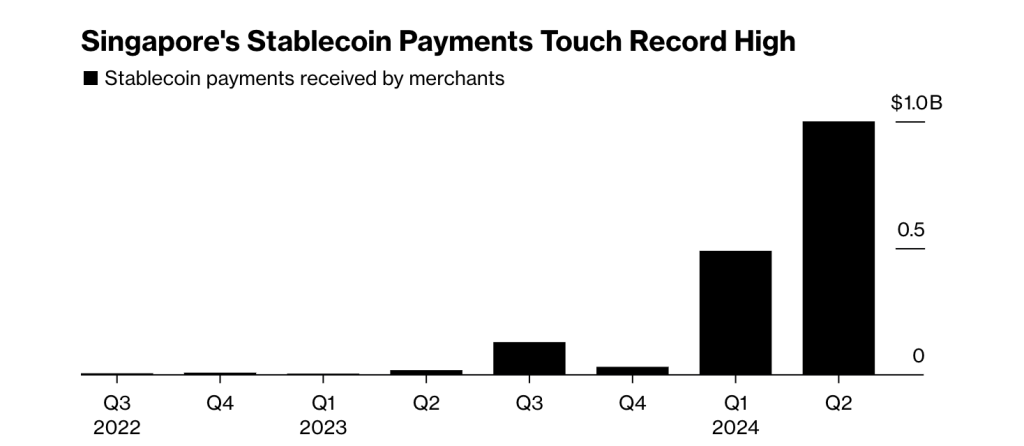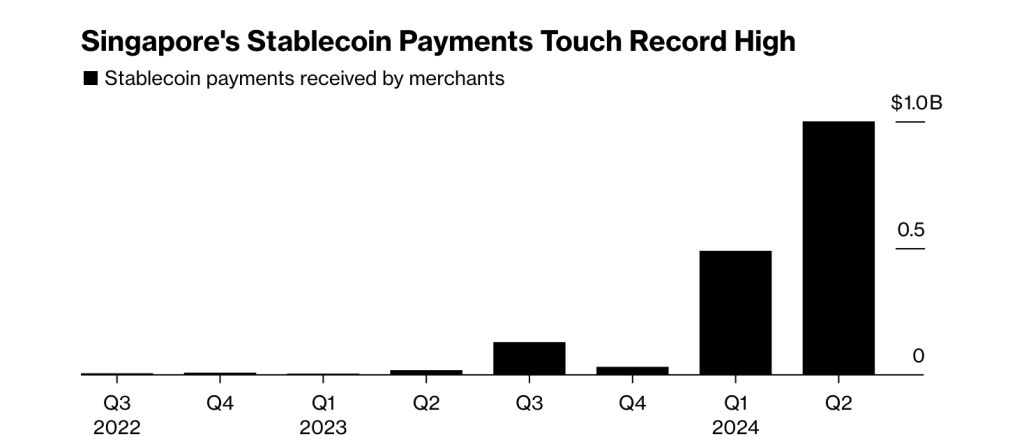Last updated:
 Why Trust Cryptonews
Why Trust Cryptonews

Singaporeans have opted for stablecoin payments increasingly, hitting a record high of nearly $1 billion in the second quarter. According to a data from Chainalysis, the payments were led by transactions at merchant outlets.
Chainalysis Cybercrimes Research Lead Eric Jardine said that merchants use stablecoins due to its “efficiency and low cost.”
The data showed that stablecoin usage in Singapore was significantly lower, with only $161 million worth of transactions in 2023.

“From stablecoins and central bank digital currencies (CBDCs) to purpose-bound money (PBM), the global stance on digital currency adoption is becoming increasingly clear — and Singapore is no exception,” Jason Tay, Head of Commercial at StraitsX, told Cryptonews.
In July, digital assets platform StraitsX, received its major payment institution license from MAS. This includes issuing stablecoins – Singapore dollar-denominated XSGD and US dollar-denominated XUSD – in compliance with MAS’ upcoming stablecoin regulatory framework.
“Our XSGD and XUSD stablecoins solidifies our commitment to making digital currencies more accessible as we continue to democratise financial products and services across the region.”
According to Bloomberg report, stablecoin usage remains a small fraction of overall payments.
However, one of the major advantages of stablecoin usage is that it offer a more efficient alternative to traditional methods. This includes nearly instant transactions, lower fees, and fewer intermediaries. Because stablecoins are pegged to a stable asset such as the SGD, businesses can use them to conduct transactions seamlessly.
MAS’ Rigorous Stablecoin Licensing Process: StraitsX
Jason Tay noted that Singapore has been lauded for its progressive and forward-thinking stance towards digital assets. Balancing innovation with stringent regulations to safeguard the industry against potentially bad actors, has come to the fore, he added.
“Whether it’s the MPI license or the forthcoming stablecoin license, all firms seeking to operate as legitimate and recognised entities must undergo the same rigorous licensing process.”
StraitsX experienced these high standards firsthand, Jason told Cryptonews. It involves extensive due-diligence including rigorous assessments of financial stability, compliance frameworks, risk management practices and the company’s overall governance.
Besides, the standards align with MAS’ secure and well-regulated environment in the crypto space, particularly in adherence to stringent anti-money laundering (AML) measures, he noted.
“We believe that the comprehensive and strict licensing requirements are essential to maintaining the integrity and stability of Singapore’s financial ecosystem.”



